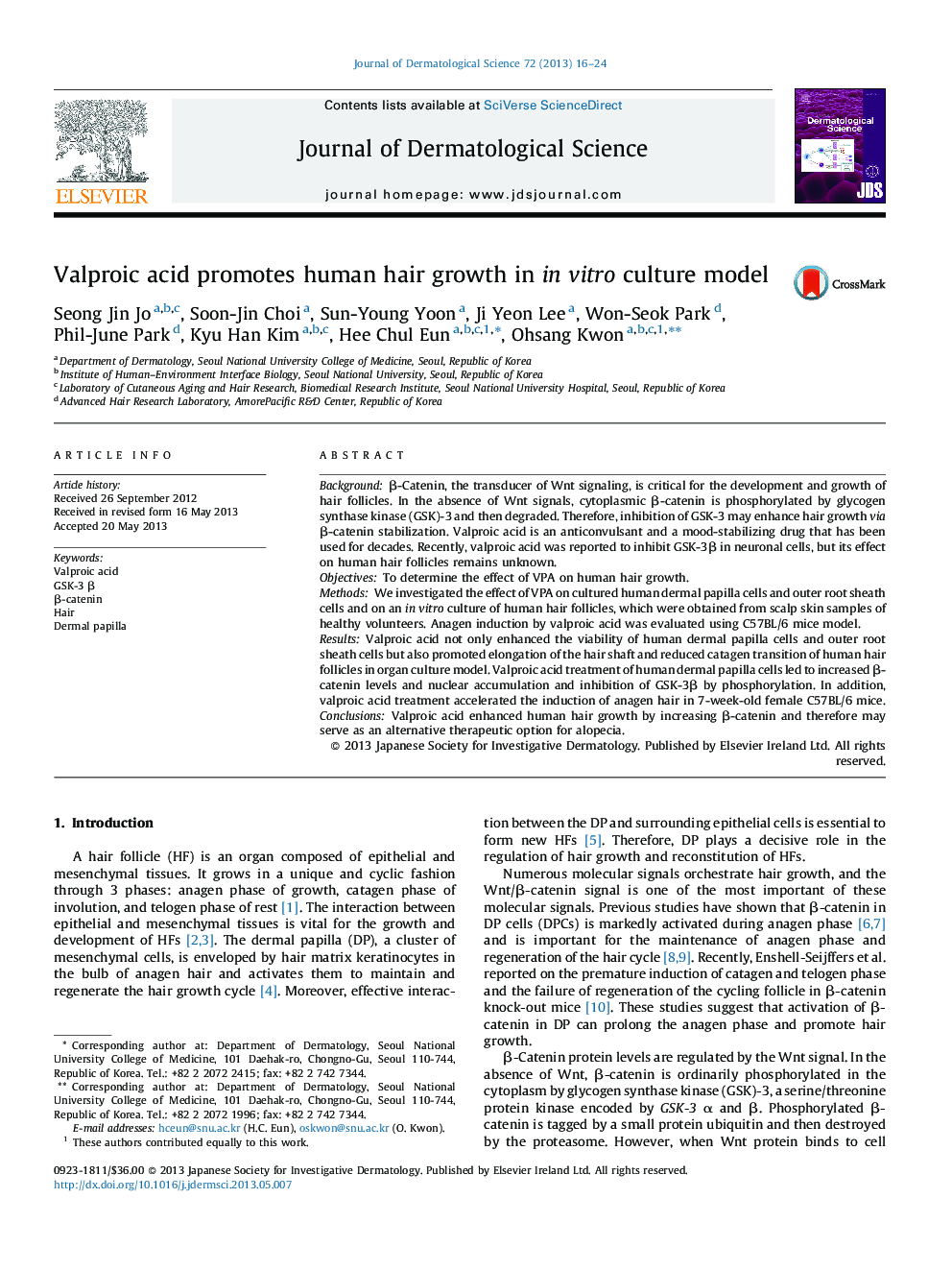| Article ID | Journal | Published Year | Pages | File Type |
|---|---|---|---|---|
| 3213010 | Journal of Dermatological Science | 2013 | 9 Pages |
Backgroundβ-Catenin, the transducer of Wnt signaling, is critical for the development and growth of hair follicles. In the absence of Wnt signals, cytoplasmic β-catenin is phosphorylated by glycogen synthase kinase (GSK)-3 and then degraded. Therefore, inhibition of GSK-3 may enhance hair growth via β-catenin stabilization. Valproic acid is an anticonvulsant and a mood-stabilizing drug that has been used for decades. Recently, valproic acid was reported to inhibit GSK-3β in neuronal cells, but its effect on human hair follicles remains unknown.ObjectivesTo determine the effect of VPA on human hair growth.MethodsWe investigated the effect of VPA on cultured human dermal papilla cells and outer root sheath cells and on an in vitro culture of human hair follicles, which were obtained from scalp skin samples of healthy volunteers. Anagen induction by valproic acid was evaluated using C57BL/6 mice model.ResultsValproic acid not only enhanced the viability of human dermal papilla cells and outer root sheath cells but also promoted elongation of the hair shaft and reduced catagen transition of human hair follicles in organ culture model. Valproic acid treatment of human dermal papilla cells led to increased β-catenin levels and nuclear accumulation and inhibition of GSK-3β by phosphorylation. In addition, valproic acid treatment accelerated the induction of anagen hair in 7-week-old female C57BL/6 mice.ConclusionsValproic acid enhanced human hair growth by increasing β-catenin and therefore may serve as an alternative therapeutic option for alopecia.
